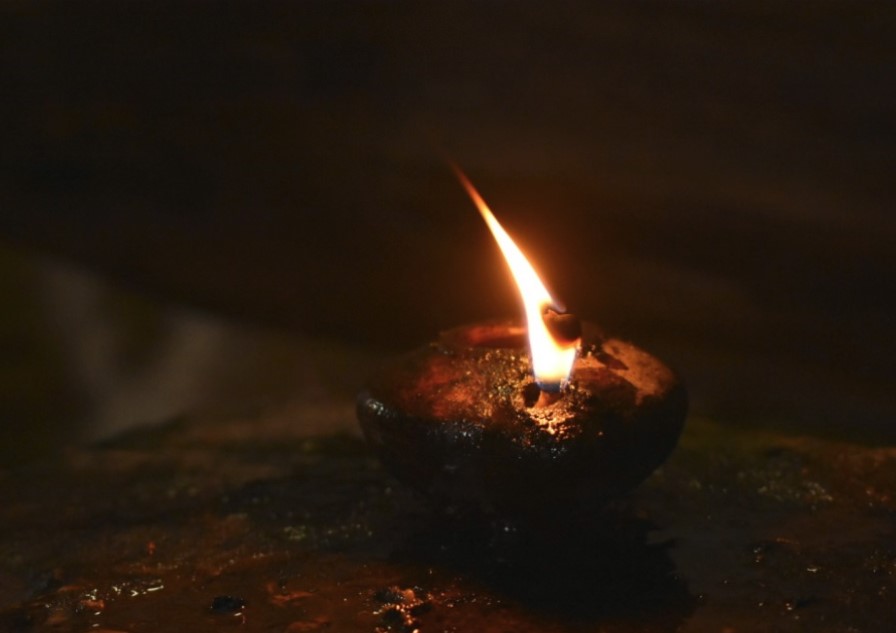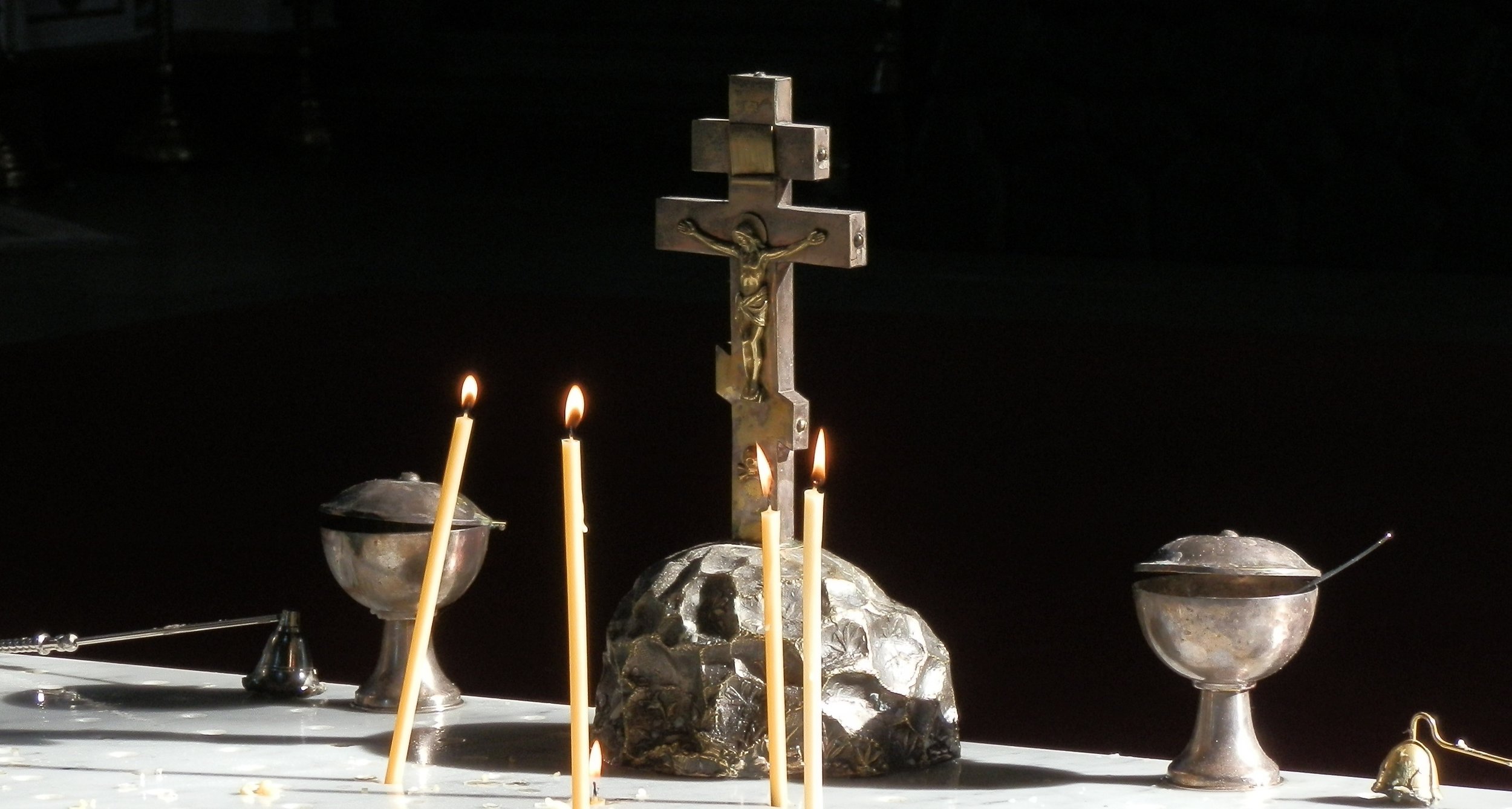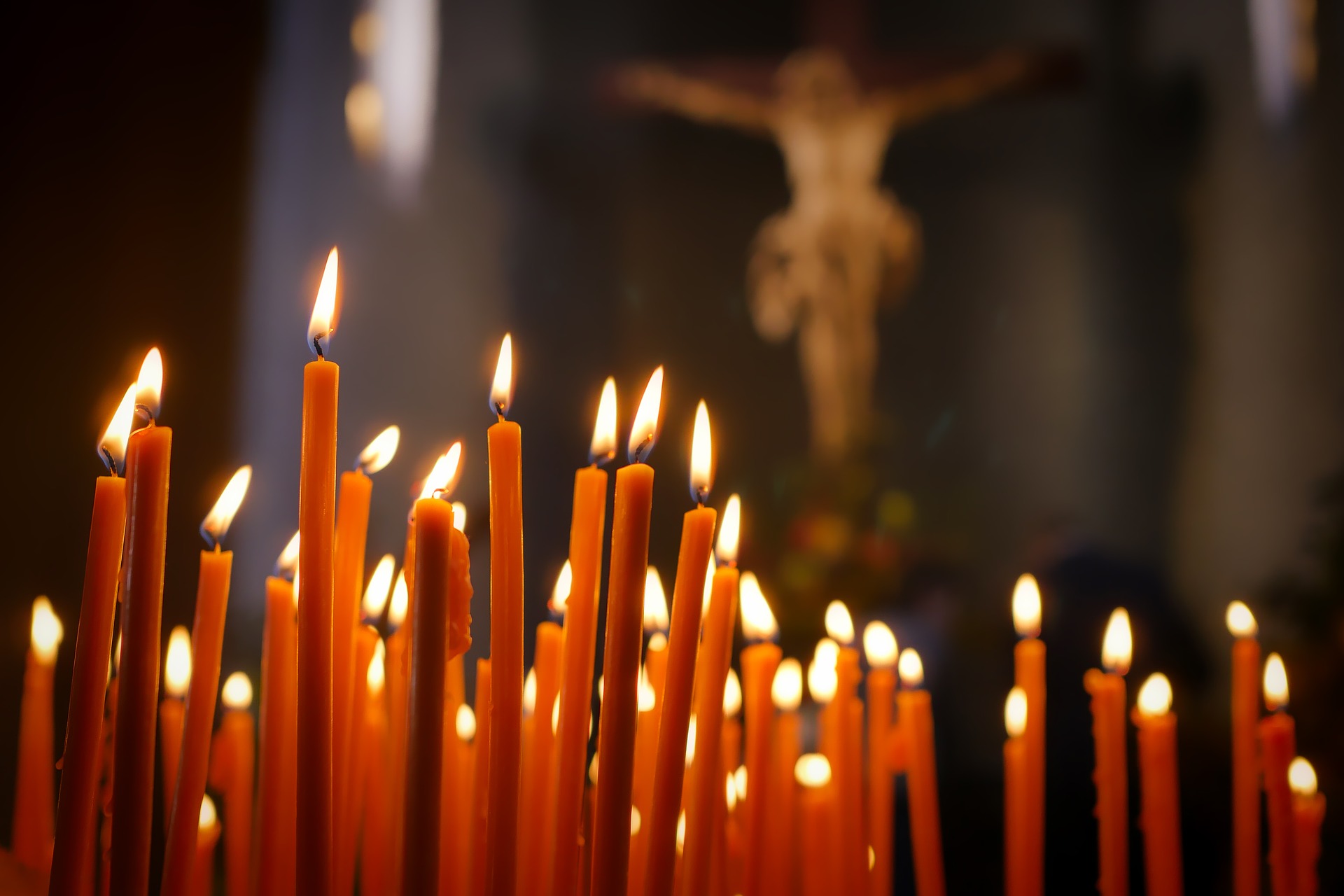Christian Restorative Justice
In the Roman Catholic Tradition
Photo credit: fietzfotos / 858 images | Public Domain, Pixabay.
Introduction
These resources explore Christians reflections from the Roman Catholic tradition, from 800 AD onward, on God’s creation order and its meaning as God’s vision for relationships between human beings, and also between human beings and the created world.
Resources on Christian Restorative Justice in the Roman Catholic Tradition
Wikipedia, Ecclesiastical Court about bishops serving in civil cases starting from late Antiquity
Wikipedia, Peace and Truce of God about limitations the church placed on private war and violence in the medieval period
Lumen Learning, Western Europe, Ch.8: Charlemagne’s Reforms (Lumen Learning) notes:
“Early in Charlemagne’s rule he tacitly allowed the Jews to monopolize money lending. When lending money for interest was proscribed in 814, being against Church law at the time, Charlemagne introduced the Capitulary for the Jews, a prohibition on Jews engaging in money lending due to the religious convictions of the majority of his constituents, in essence banning it across the board, a reversal of his earlier recorded general policy. In addition to this macro-oriented reform of the economy, Charlemagne also performed a significant number of microeconomic reforms, such as direct control of prices and levies on certain goods and commodities.
His Capitulary for the Jews, however, was not representative of his overall economic relationship or attitude toward the Frankish Jews, and certainly not his earlier relationship with them, which had evolved over his lifespan. His paid personal physician, for example, was Jewish, and he employed at least one Jew for his diplomatic missions, a personal representative to the Muslim caliphate of Baghdad. Letters have been credited to him inviting Jews to settle in his kingdom for economic purposes, generally welcoming them through his overall progressive policies.”
Peter Maurin, Easy Essays: Guild System - 1200 AD. Peter Maurin | Catholic Worker Movement, 1920s. A series of short, witty poems that tell European economic history from a social-theological perspective. Maurin (1877 - 1949) composed these in the 1920s and started the Catholic Worker Movement with Dorothy Day in 1933. Maurin advocated for what he called a personalist democracy.
Oliver O’Donovan and Joan Lockwood O’Donovan, Bonds of Imperfection: Christian Politics, Past and Present. Eerdmans | Amazon page, 2003. The O’Donovans cover leading Christian thinkers, actors, and decisions in pre-modern and modern Western history.
Peter Brown, Through the Eye of a Needle: Wealth, the Fall of Rome, and the Making of Christianity in the West, 350 - 550 AD. Princeton University Press | Amazon page, Mar 2014.
Larry Siedentop, Inventing the Individual: The Origins of Western Liberalism. Harvard University Press | Amazon page, Mar 31, 2015. Siedentop gives an overview of how the growth of the papacy in the 11th - 14th centuries corresponded to the growing powers of monarchs, as the church sought to protect individuals and its own role as guardian of souls.
Tradistae, Easy Essay: Private Property in Classical Liberalism vs. Christian Tradition. Tradistae | Catholic Worker Movement, May 18, 2021. A 3 - 4 minute read that critiques John Locke’s theory of property (labor entitles ownership) from the long perspective of Christian tradition (notably Thomas Aquinas) and the modern Catholic Social Teaching. For a 6 minute audio lecture version, click here.
Thomas Storck, An Economics of Justice and Charity: Catholic Social Teaching, Its Development and Contemporary Relevance. Angelico Press | Amazon page, Nov 2017. See also Tradistae, Interview: Thomas Storck on Catholic Social Teaching. Tradistae podcast, Feb 16, 2021.
Tradistae, The Medieval vs. Modern View of Nature. Tradistae podcast, Mar 20, 2020. Tom and James discuss contrasting views of nature from premodern paganism, ancient Israel, early and medieval Christianity, and modernity. Why you need to pray for and with Creation to lay waste to the progeny of Francis Bacon and the technocratic paradigm.
Thomas Storck, The Glory of the Cosmos: A Catholic Approach to the Natural World. Arouca Press | Amazon page, Nov 2020.
Dorothy Day, Where Your Treasure Is. Plough, Jul 20, 2023. Includes readings from Nikolai Berdyaev, Basil of Caesarea, Maria Skobtsova, and C.S. Lewis.
Papal Encyclicals on the Catholic Social Teaching
Pope Leo XIII, Rerum Novarum (On Capital and Labor, 1891)
Pope Pius XI, Quadragesimo Anno (Reconstruction of the Social Order, 1931)
Pope John XXIII, Mater et Magistra (Christianity and Social Progress, 1961)
Pope John XXIII, Pacem en Terris (Peace on Earth, 1963)
Second Vatican Council, Gaudium et Spes (Joys and Hopes, 1965)
Pope Paul VI, Populorum Progressio (On Development of Peoples, 1967)
Pope Paul VI, Octogesima Adveniens (Eightieth Anniversary, A Call to Action, 1971)
Pope John Paul II, Laborem Exercens (On Human Work, 1981)
Pope John Paul II, Sollicitudo Rei Socialis (The Social Concern of the Church, 1987)
Pope John Paul II, Centesimus Annus (The One Hundredth Year, 1991)
Pope Benedict XVI, Deus Caritas Est (God is Love, 2005)
Pope Benedict XVI, Caritas in Veritate (Charity in Truth, 2009). See also Jame Schaefer and Tobias Winright, Environmental Justice and Climate Change: Assessing Pope Benedict XVI’s Ecological Vision for the Catholic Church in the United States. Lexington Books | Amazon page, 2013. This book includes Pope Benedict XVI, Message on the 2010 Day of Peace.
Pope Francis I, Evangelii Gaudium (The Joy of the Gospel, 2014)
Pope Francis I, Laudato Si (On Care for Our Common Home, 2015)
Pope Francis I, Fratelli Tutti (On Fraternity and Social Friendship, 2020). See also Isabella Piro, “Fratelli tutti”: Short Summary of Pope Francis's Social Encyclical (Vatican News). See also Sylvia Poggioli, Pope Francis Laments Failures Of Market Capitalism In Blueprint For Post-COVID World. NPR, Oct 4, 2020. See also Maria Power, Fratelli Tutti: Pope Francis Delivers New Teaching Aimed at Healing Divisions in the Face of Coronavirus. The Conversation, Oct 5, 2020. See also John W. Miller, Moral Economy series (2021).
Catholic Social Teaching: Applications, Commentary
Wikipedia, Mondragon Cooperative (Wikipedia article) about a Christian community in the Basque, Spain region formally started in 1956 and running on the Catholic social teaching. See more resources on our Worker Cooperatives page.
Australian Catholic Social Justice Council, Catholic Social Teaching study guides (website)
Catholic Worker Movement (website), founded by Dorothy Day and Peter Maurin. See Peter Maurin, Easy Essays (Catholic Worker Movement)
Catholic Worker of Hartford, Connecticut (website)
Distributist Review (website), a Catholic online journal. See also Distributism (wikipedia article) an economic philosophy based on the Catholic Social Teaching, promoted by G.K. Chesterton and others.
Oliver O’Donovan and Joan Lockwood O’Donovan, Bonds of Imperfection: Christian Politics, Past and Present. Eerdmans | Amazon page, 2003) covers leading Christian thinkers, actors, and decisions in pre-modern and modern Western history
Robert Spencer, Slavery, Christianity, and Islam. First Things, Feb 4, 2008.
Thomas Storck, Is Usury Still a Sin? (originally Distributist Review magazine, fall 2009)
Stephen Pope, Restorative Justice as a Prophetic Path to Peace (CTSA Proceedings, 2010)
Thomas Storck, Is the Acton Institute a Genuine Expression of Catholic Social Thought? Distributist Review magazine, July 4, 2011.
Angus Sibley, The "Poisoned Spring" of Economic Libertarianism: Menger, Mises, Hayek, Rothbard: A Critique from Catholic Social Teaching of the 'Austrian School' of Economics. Create Space Independent Publishing | Amazon page, May 201. See also Michael Sean Winters' review. National Catholic Responder, Jul 6, 2011.
Tim Wallace, A Short Guide to Catholic Economic Thinkers. The Record, Nov 9, 2011.
Ovidiu Hurduzeu, Distributism in Eastern Europe. The Distributist Review, Dec 5, 2011.
Thomas Storck, Aquinas on Buying and Selling. Distributist Review magazine, May 14, 2013.
Norman G. Kurland, The Just Third Way: Basic Principles of Economic and Social Justice. Center for Economic and Social Justice, May 28, 2004.
Patrick Deneen, A Catholic Showdown Worth Watching. The American Conservative, Feb 6, 2014. About integralism vs. pluralism.
Jay P. Corrin, The Emergence of Radical Catholic Social Philosophy. Religion News Service, Mar 7, 2014.
Arthur W. Hunt, Pope Francis Needs Distributism. The American Conservative, Apr 3, 2014.
Jack Jenkins, Pope: The Bible Demands The Redistribution Of Wealth. ThinkProgress, May 9, 2014.
Brad Littlejohn, Aquinas and Legal Realism: The Roots of Private Property. Political Theology, Jul 25, 2014. Between common use and absolute privatization through enclosure and/or force lies political agreement, or consensus. But how often can agreement-consensus be renegotiated?
Thomas Storck, What's Really at Stake in the Catholic Showdown? Ethika Politika, Dec 4, 2014.
Marc Vander Maas, A Gentleman's Debate: Distributism vs. Free Markets. Acton Institute, Mar 16, 2016. See also Gregory Guest, Distributive Justice and Economic Liberalism - Reflections on a Gentleman's Debate. Patheos, Feb 26, 2016.
Artur Rosman, Why Speak of Theocracy in Poland When Confessional States Make Up the Secular West? Patheos, Jun 10, 2016.
Philip Puella, Pope Decries "Epidemic of Animosity" Against Immigrants and Other Faiths. Reuters, Nov 19, 2016.
Michael D. Greaney, Socialism vs. Social Justice. The Just Third Way, Apr 17, 2017.
Deal W. Hudson, Steve Bannon: The Necessary Man. USA Today, May 4, 2017. A curious attempt to justify economic nationalism by a Catholic Republican.
Michael D. Greaney, The Redemption of the Non-Owning Workers. The Just Third Way, Jun 14, 2017.
Michael D. Greaney, How Not to Save Social Security. The Just Third Way, Aug 8, 2017. Advocates capital homesteading.
D.C. Schindler, Freedom from Reality: The Diabolical Character of Modern Liberty. University of Notre Dame Press | Amazon page, Oct 18, 2017. A tremendous social commentary of Western individualistic freedom by a Catholic philosopher.
Mary Papenfuss, Pope Francis Warns Oil Executives That Fossil Fuels Threaten Humanity. Huffington Post, Jun 9, 2018.
Matthew A. Shadle, Interrupting Capitalism: Catholic Social Thought and the Economy. Oxford University Press | Amazon page, Jul 2018. See outstanding summary by Daniel K. Finn, Economics as if Theology Mattered. Commonweal, Dec 19, 2018.
Rod Dreher, Sohrab Ahmari Vs. David French. The American Conservative, May 30, 2019. Ahmari is a Catholic integralist or establishmentarian; French is an evangelical and politically, classical liberal; the question of whether classical liberalism leads necessarily to relativism and anti-Christian society. See also Adam Serwer, The Illiberal Right Throws a Tantrum. The Atlantic, Jun 14, 2019.
Jack Quirk, Bernie Sanders Tacks Distributist. Patheos | Christian Democracy, Jun 10, 2019. Contains a good explanation of Catholic distributism.
Victor Gaetan, Pope Francis’ Holy Diplomacy in Ukraine. Foreign Affairs, Sep 5, 2019. “Why Washington and the Vatican Don’t See Eye to Eye”; draws attention to four principles Pope Francis expressed in Evangelii Gaudium.
Tradistae, Manufactured Consent. Tradistae podcast, Feb 25, 2020. James and Tom discuss Herman and Chomsky’s, Manufacturing Consent: The Political Economy of Mass Media (1988, 2008) (pdf copy) and how liberal democracy gins up "consent" with the tools of the "neutral" media.
Bronson Barringer, The Business of War: Theological and Ethical Reflections on the Military-Industrial Complex. Wipf and Stock | Amazon page, Mar 2020. An outstanding collection of essays about U.S. militarism and its impacts on domestic and foreign affairs. Especially good are the chapters highlighting U.S. hegemony over Latin America, Korea, and elsewhere on the grounds of fighting “communism.”
Tradistae, Whig Thomism: Against Acton Institute. Tradistae podcast, May 14, 2020. “Tom and James discuss "Whig Thomism", in other words, the attempts by Michael Novak, Fr. Sirico, and various other perverters of Catholic Social Teaching to make capitalism and liberalism seem compatible with the Holy Faith. From out-of-context quotes to fallacious claims to rejecting Papal authority, we break down how Acton Insitute has worked hard to disguise, distort, and deny the guidance of the Social Encyclicals.”
Elias Crim, Beyond Distributism to Solidarity Economics. Solidarity Hall, Jul 1, 2020. “Over the last two decades, the current pope and his two predecessors have all been pointing toward a particular and quite Catholic extension of distributist thinking in the form of cooperativism, as notably championed by Fr. Josemaria Arizmendi, founder and theorist of the Mondragon Cooperatives…. In the World Social Forum call, spokespersons for four Black organizations each gave their sense of the present moment in terms of their local efforts. Each group has embraced one or more elements of what we can see are distributist/cooperativist tenets in their agendas. Moreover, ecological and racial justice are equally important dimensions in their work — two dimensions lacking from distributist thinking generally.”
Thomas Jones, A Catholic’s Case to Dump Trump. Novena, Sep 4, 2020.
Tradistae, Against Billionaires, Part 1: The Papal Argument. Tradistae podcast, Sep 14, 2020. See also Tradistae, Against Billionaires, Part 2: The Thomistic Argument. Tradistae podcast, Sep 19, 2020. Examines modern and medieval Catholic teaching on social inequality.
Brett Salkeld, Holding Your Nose: How to Vote Like a Catholic. University of Notre Dame Church Life Journal, Sep 23, 2020.
Lee Morrow, Catholic Lobby Rejects the Nomination of Amy Coney Barrett. Network Lobby, Sep 25, 2020. “Years of decisions by Judge Barrett on the Seventh Circuit Court of Appeals prove that she does not hold all life to be sacred, as we are instructed to do by Catholic Social Teaching and Pope Francis.”
Kathleen Bonette, The Friendly Tension Between Catholic Social Teaching and Capitalism. U.S. Catholic, Oct 23, 2020.
Timothy Troutner, The New Integralists. Commonweal, Oct 28, 2020. “What they get wrong, and why we can’t ignore them” examines those Catholics who believe that Catholicism and democracy are intrinsically at odds, so Catholics must return to a monarchical, authoritarian and pre-democratic state. This Catholic strain is important to understand because white evangelicals have made some common cause with them.
Tradistae, The Duopoly and “the Working Class”. Tradistae podcast, Nov 12, 2020. “Thomas does a class analysis that breaks down the coalitions of the duopoly in the USA, using evidence from the donor and voter bases of the 2020 presidential election.” Argues that Republicans are a coalition of: Old Industry (oil, coal, manufacturing and extractives in general); Military/Police; Small Business; Manual Laborers. Whereas Democrats are a coalition of: New Industry (Big Tech); Artists/Creatives; Big Business (hedge funds, banks, Amazon, Walmart, etc); Professionals/Managers.
Tradistae, The Old Limits of the Merchant Class. Tradistae podcast, Nov 21, 2020. Historical and some cross cultural perspective.
Fran Ferder and Fr. John Heagle, How Catholics Got Conned by Donald Trump. NCR Online, Jan 14, 2021. Fran Ferder is a Franciscan sister and a clinical psychologist. Fr. John Heagle is chair of the Gospel Nonviolence Working Group for AUSCP (the Association of United States Catholic Priests). They share a counseling ministry in Oregon.
Tradistae, Dr. Levi Russel on Usury. Tradistae podcast, Jan 19, 2021. “Thomas interviews economist Dr. Levi A. Russell, a fellow at the Leonine Institute, on usury and the "Solidarism" of Pesch, a Jesuit economist.”
John W. Miller, Inside Pope Francis’ Mission to Make Capitalism Work for the Common Good. America Jesuit Magazine, Jan 27, 2021.
Susanna K. Flynn, We Pay Debts of Justice by Performing Works of Mercy. National Catholic Register, Feb 3, 2021. Contains important quotes about the natural world and justice from John Chrysostom, Pope Gregory the Great, Thomas Aquinas, and Pope Leo XIII’s Rerum Novarum. See also Catholic Culture, Catechism of the Catholic Church, for citation sources. Christian ethical thought on property rights was human rights oriented. Matt Schrage, Rousseau and Locke on Property and the State. Matt Schrage blog, Apr 26, 2018. Contrasts Rousseau’s and Locke’s arguments for private property. For Rousseau, private property was the derivation of human political life, which came before it and can reorganize property. For Locke, private property was a law from God in creation that a person brought with him into the political community, and the state had to be limited and could not take away his property. See also Trevor Wright, Private Property: Origins, Outcomes, Justifications. Medium, Apr 19, 2017.
John W. Miller, Nursing Homes Were Broken Long Before COVID-19. America Jesuit Magazine, Feb 24, 2021.
John W. Miller, The Fight to Unionize Amazon Is the Most Important Labor Story of This Century. America Jesuit Magazine, Mar 25, 2021.
Tradistae, Easy Essay: Planning, Regulation, and Distributive Justice. Tradistae, Apr 21, 2021. Discusses redistribution of wealth for the benefit of the poor, and active economic planning for the common good.
John W. Miller, It’s Easy to Hate ‘the Media.’ But Local Journalism Is Essential (and Holy) Work. America Jesuit Magazine, Apr 28, 2021.
John W. Miller, Pope Francis is Right: Modern Poverty in the United States Is a Scandal. But What Are Possible Solutions? America Jesuit Magazine, May 27, 2021.
Pope Francis I, Message on the Occasion of the Fourth World Meeting of Popular Movements. Vatican, Oct 16, 2021. See commentary by David Doel, Pope Francis Slams Capitalism in Detail. The Rational National, Oct 24, 2021.
Jason Horowitz and Ruth Graham, Pope Says a Strong U.S. Faction Offers a Backward, Narrow View of the Church. New York Times, Aug 30, 2023. “In unusually sharp remarks published this week, Pope Francis said some conservative American Catholics wrongly ignore much of the Church’s mission and reject the possibility of change.” “In 2018, in a major document called an apostolic exhortation on the subject of holiness, Francis explicitly wrote that caring for migrants and the poor is as holy a pursuit as opposing abortion. “Our defense of the innocent unborn, for example, needs to be clear, firm and passionate,” he wrote. “Equally sacred, however, are the lives of the poor, those already born, the destitute, the abandoned.””
Vesa Hautala, The Ordo Amoris Has an Important Exception. Christ and Counterfactuals, Feb 4, 2025. “Thomas’s position seems to be that greater need can override the usual order in some cases. Extreme necessity can trump the usual hierarchy of love. This is a very reasonable caveat. Otherwise, we would need to prioritise even a tiny benefit to our families over saving a stranger’s life, and so on. There needs to be some prioritising going on, of course, if we want to talk about an order of love in the first place. But prioritising family, fellow citizens, fellow believers, etc. is not absolute. When does need override closeness? Stephen J. Pope comments on this: “Cases of conflict are adjudicated through the exercise of the cardinal virtue of prudence, which carefully weighs degrees of need and connection”. (The Evolution of Altruism and the Ordering of Love, p. 64) You have to use your reason to figure out the relative weights of the needs of people further or closer to you and balance between them.”
Michael Reneau and Dan Hugger, Why J.D. Vance Is Wrong About the Catholic Church’s Mission. The Dispatch, Feb 9, 2025.
Sources of Christian Restorative Justice:
This section explores theological reflection on God’s justice as restorative: in Scripture; the Early Church up to John of Damascus; the Orthodox tradition, both Eastern and Oriental; the Roman Catholic tradition; and the Protestant tradition. See our Restorative Justice Tutorial, or go back to the main page of Sources, or the main page of Politics for how to apply this vision.








